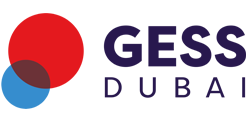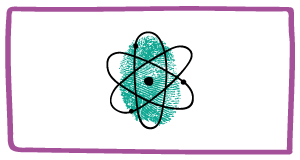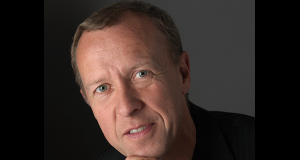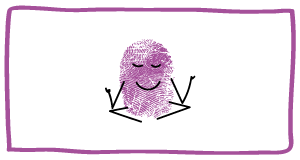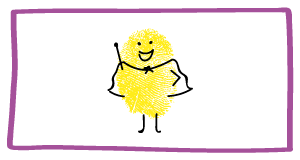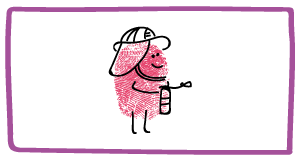In Conversation with...Sharifa Hajjat

This month we speak to Sharifa Hajjat to find out more about the Arab elearning website, engaging students on the web and her vision for the future of education.
When and why did you set up Arab elearning website?
In Jan 2011 the website was up and running after a few months of preparation of content and design. Shortly after, I setup the social networking side of it such as the Facebook page, Twitter and LinkedIn. Early this year, we activated the “Arab eLearning TV” which a YouTube channel. It was accepted as an Educational channel on YouTube EDU
What was your biggest challenge in setting up Arab elearning?
A couple of challenges actually when started; first one is the content. As you may know, we have a lack in the Arabic online material about Education Technologies and eLearning topics. Time needed for the start up material of the site and in filtering the majority of the existing content and link to the quality resources which will be beneficial for our members. The second challenge was that someone hacked the site during the first week of the launch. He was a school kid and I guess he was doing that for fun! That alerted us at the early stages of the launch to the properly secure the site with the necessary applications and expertise
You’ve mentioned before that there are a lot of education materials in English, particularly those online but there is a gap in resources for Arab teachers / educators what can teachers do to rectify this?
That's true. The gap is there and everybody in this fields clearly feel it. Arab educators and teachers (from different technical skills levels) can create and develop online material for their day-day classes. With the availability of elearning authoring tools, teachers don't need to have programming or design skills, but to only work with the tools and create the online content. A teacher for example can have a yearly target to create material for a particular grade/class and start sharing what they created with other teachers. Sharing online content through a centric repository in the school or even on educational social networks like the Arab eLearning Academy will facilitate access for more teachers to the content and spread best practices and new ways in doing things. This will eventually results a noticeable quality online educational content that teachers around the region can use
You have regular webinars in Arabic – what do you think are the most pressing educational issues at the moment?
In the region, we are seeing the strategies of creating online content to be a pressing issue for school leadership and educational technologists. Lots of money is put into digitizing the curriculum in schools and creating engaging and interactive content that improves the students performance. We still need to complete the loop with a Quality management process where the impact of such development is quantified and measured as an essential part of content development methodologies such as ADDIE - we still need to take a model like that in school and consciously plan the different phases and stages in order to get better and more improved and more interactive content
Tell us about the eThraa competition on the Arab elearning website?
eThraa إثراء is an Arabic word means "enrichment. The competition is geared towards a focused mission to enrich the quality education elearning material in Arabic language. Again, this is part of our mission as the Arab eLearning Academy and this is where we see an issue of quantity and quality needs to be addressed. eThraa is one way to encourage teachers from schools and university to thinking through and plan creative ways to present their content and to increase students engagement and retain of the material.
And to encourage sharing best practices amongst Arab Educators. Teachers can submit their work in one or more of 3 categories:
- Creating an interactive online lesson
- Developing an interactive educational game
- Interactive incorporation or implementation of social media elements in educational environment
- Due date for the submissions is 4th Jan 2014 , and we will announce the winners during the upcoming GESS conference in March-2014
According to the recent 2013 Arab Youth Survey in Arabian Business, 81% of Arab young people say they are active users of the internet. This is a huge proportion, do you think schools should be doing more to engage with pupils online and how could this be done?
Absolutely ... Schools have a great opportunity to stay connected to students , not only because of the availability of the Internet but also because of the revolutionary ear of using smart phones and tablet devices. This means our students are literally connected 24/7 - they are ready to receive information and interact with it if it gets their attention. This is what schools needs to plan carefully,mid making the communication channels with students open, transparent, available, accessible and interesting. From students perspective, students nowadays want to study, socialize, play and communicate all at the same time. We need revolutionary school administrations and schools teachers who can take on this opportunity and connect with their students on the same level of technology, through social media, online classes, online virtual office hours, new ways of teaching and learning and making the students the center of the teaching and learning process as opposed to the lecturer
What would you say is your greatest achievement so far?
Arab eLearning Academy was successful in providing a model that can be replicated by other Educators. Oman ministry of education - the eLearning initiative have replicated what the Academy is doing, and started providing educational Webinars through Virtual Classrooms to teachers. other individual websites and blogs have started to do the same thing. This is exactly what we are looking for in the Arab Academy, to disseminate the knowledge, create awareness and get more enthusiastic educators on board. I would also say that reaching out to 45000+ educators on our members list and providing non-interrupted weekly Webinars series for two years with no support but working with our volunteers is significant to us
Any new projects in the pipeline?
Yes. We have a very interesting project coming soon. I'm sure you have heard of MOOCS (massive open online courses) which is the latest trend world wide in education. Big universities make their some of their courses available online to public to enroll in. MOOCS get thiudands of students and it is a way to eduacte masive number of people on certain topics. One of the most famous examples on that is "Coursera". eLearning Arab Academy is preparing for the 1st MOOC ever in Arabic language. This will be directed to Arab Educators and it will be released towards OCT this year.
Are there any specific challenges online that are particular to the Middle East and how could these be overcome?
To be honest with you, I see the biggest issue in this regard in the Middle East is changing the mindset of the key stakeholders; teachers, magnate meant and leadership, students and parents. I can see that schools are doing a good job in noticing the changes in the international community and trying to adopt same techniques and experiments. But we need to customize and contextualize those techniques and practices so they be efficient in our environment as well. We (as an educational society ) need to invest more in professional development for teachers and for change management so we have new and fresh perspective of how can we incorporate the technology in our hands and in the students hands for the best interest and value for teaching and learning
5 things about you!
- What’s your favourite song of all time and why? It's not a song, but it's classic music. I like to listen to classics. I understand it and feel it more than the very modern music
- What’s one book everyone should read? "The Power of Habits" by Charles Duhigg. It makes you understand how your habits are created and developed and how can create other habits, whether you were a student wants to establish successful study habits, or a professional looking for efficient time management habits or just a person who wants to make sure they establish a good health eating or exercising habits
- What’s your favourite quote? I have many quotes that inspires me, I will choose one from our Arabic & Islamic culture by the prophet Mohammad, peace be upon him, (The angels will lower their wings in their great pleasure with one who seeks knowledge) This quote makes me always think how the knowledge and knowledge seekers are respected, appreciated and encouraged
- If you were President, what would be the first thing you’d do? I would ask for a 5-years strategic plan from ministry of higher education to improve the school graduate outcomes that includes career development so students can have an idea about what they would like to study after schools and why
- If you could travel anywhere in the world where would it be? I would take a cruise tour around the world.
And finally, what would your advice be to anyone setting up their own website or webinars?
Just do it. It doesn't have to be perfect. Just get it online and running. Your users will give you valuable feedback to make it better. Continuous development will be always part of your plan.
 To find out more about the Arab eLearning academy visit: www.arab-elearning-academy.com
To find out more about the Arab eLearning academy visit: www.arab-elearning-academy.com
